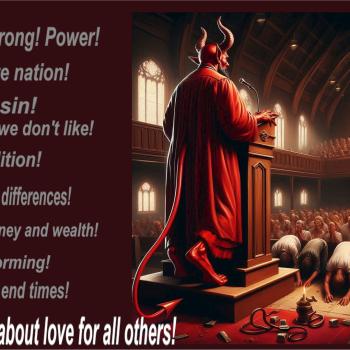Rémi Brague, an important French philosopher and historian of ideas, is the author of several books, including (in English translation), The Wisdom of the World: The Human Experience of the Universe in Western Thought (2004), The Law of God: The Philosophical History of an Idea (2008), and the as yet untranslated Les ancres dans le ciel—L'infrastructure métaphysique (2011).
Professor Brague's work often traces the history of important ideas from their Greek and Hebrew roots, through the Christian, Jewish, and Muslim understandings of them, to their current meaning. Lately, however, as Les ancres and a paper he read in Krakow last spring show, his attention has turned more to questions of the family. Why, for example, do human beings continue to reproduce when it is possible to avoid doing so and when, for many, there is no apparent good to life except personal pleasure (though not necessarily merely crass personal pleasure)? Last Friday Brague spoke at Brigham Young University, and at our request he considered the topic of the family again.
It would be unkind to say that Brague's talk was interesting, because that would put it with so many other merely interesting things, but perhaps that would be a comment with which to start. Better to show the effect his presentation had: eight of the students in my senior-level topics in philosophy course attended, and they came to class today, four days later, eager to talk about what he said. Their response was not unique.
Let me try to say, too briefly, what Brague talked about. Since he read a paper approximately an hour long and then answered questions for another thirty minutes, I can't honestly represent what I say here as anything more than a brief report on some things I heard. Professor Brague cannot be held to have said anything I attribute to him. If I get it right, these are his thoughts. If I don't, they are my reactions, perhaps reactions that show little more than my misunderstanding.
Brague began with a point also made by other contemporary thinkers: modern thought (John Locke comes to mind) begins with a notion of the atomistic individual; each person is a self-aware continuity of individual consciousness. Human identity is constituted by that continuity rather than by something like family heritage, as it was for the nobility.
This understanding of the person as defined by his or her own being and not in relation to something else, such as a family heritage or religious tradition, is a new one. The question of how to build human relations from these Lockean human "atoms" would have been unthinkable prior to the modern period (in other words, since about 1600). The question is what effects has this new way of understanding human beings had, and the answer is that they have been profound.
As every beginning student of political philosophy knows, Locke's answer is that our relations are founded on the principle of individual consent. The individual, willing agent consents to associate with others. He or she enters into a social contract with other persons. All of our relations are ultimately human creations.
The capitalist market and the modern nation-state are built on this view of persons as atoms and human relations as merely conventional. The market understands us that way and approaches us that way, not only providing goods for us to consume, but also finding ways to tempt us to desire its goods, ways that are almost universally an appeal to individual will and desire.
I've heard, for example, that in the early 20th century, when workers were first offered an increase in per-piece pay in an attempt to get them to produce more, they instead worked less. Their attitude was "I can make the same amount of money now in less time" rather than "I can now make more money in the same amount of time." Only when they learned to want more than they presently had and were given the opportunity to buy on time (refrigerators, autos, houses) did they begin to feel the need to make more money.
The market had to teach workers to want to consume, and the wants to which it appealed were individual wants or they were couched in terms of individual wants and desires. It continues to make that appeal. Even appeals to the welfare of a person's family rather than to that person's individual welfare are most often couched in terms of individual will: I desire to be a good father; I want to provide a suitable house. The market offers ways for me to fulfill those individual wills and desires. It sees me as an individual and encourages me to see myself the same way.





